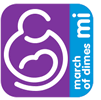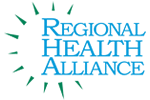Frequently asked questions
Approximately half of all pregnancies are unplanned. In order to give your baby a healthy start, you need to think about your health before you get pregnant. This means that prior to getting pregnant, you should:
- See your provider for a checkup BEFORE you get pregnant.
- Talk to your provider about things like family medical history, risk of birth defects, genetic conditions, your weight, and chronic illnesses.
- Talk to your provider about the medications you take and make sure they're safe during pregnancy.
- Eat a healthy diet that includes a variety of fruits and vegetables, such as leafy greens, in addition to lean proteins and fiber.
- Take a folic acid supplement or multivitamin with 400 micrograms of folic acid daily.
- If you smoke, quit. Smoking is strongly linked with infertility in both women and men so you may also find it more difficult to become pregnant in the first place.
- Get checked for hepatitis B and C, sexually transmitted infections, and HIV.
- Get any health problems, such as diabetes and high blood pressure, under control.
- If you are overweight, talk to your provider about how to attain a healthy weight.
It's important to get sufficient folic acid before getting pregnant. Folic acid is a B vitamin that helps prevent birth defects like spina bifida. Because many of these conditions arise very early in pregnancy, you need healthy levels of folic acid right from the start. Take a folic acid supplement or multivitamin with 400 micrograms of folic acid daily.
Begin taking a prenatal vitamin to get more nutrients your body needs. Begin taking prenatal vitamins as soon as you know you are pregnant. Look for a multivitamin that contains 400 micrograms of folic acid. Your provider can also recommend a vitamin for you.
Get all essential vitamins and minerals daily. That means sticking with the prenatal vitamins, as well as eating a healthy diet. Fill your plate with leafy greens, fruits, veggies, and whole grains (like wheat breads and cereals). Get plenty of calcium-rich foods like broccoli and low-fat milk and yogurt, to help build your baby's bones and teeth. Stick to lean meats like chicken and turkey. To learn more, visit Calhoun County's WIC facebook page.
More foods can affect your health or your baby's than you might realize.
- Fish with lots of mercury. High levels of mercury can damage a baby's developing brain. Don't cut out fish completely -- they have important omega-3 fatty acids. Cut out fish like swordfish, tilefish, and shark. You can still eat snapper, but no more than one serving a week. You can eat up to two servings of fish like salmon, catfish, mahi mahi, and cod, along with shellfish like shrimp, crab, and scallops.
- Unpasteurized soft cheeses like brie, Camembert, feta, gorgonzola, and Roquefort. They may contain a bacteria called listeria that can cross the placenta, potentially causing miscarriage or leading to a life-threatening infection.
- Unpasteurized milk, which can also contain listeria.
- Cold ready-to-eat meats, like hot dogs and luncheon meats can also contain listeria. Reheat these foods until they are steaming.
- Uncooked or cured eggs and meats, like prosciutto, runny eggs, and sauces made with raw eggs (like some hollandaise sauces).
- Alcohol. There is no known safe level of exposure to alcohol for a fetus. Prenatal exposure to alcohol interferes with healthy development and can lead to fetal alcohol syndrome, one of the most common causes of mental retardation and the only one that is completely preventable.
- Caffeine. While some studies show that moderate caffeine intake during pregnancy is OK, others have found a link to miscarriage, so it's particularly important to steer clear of caffeine during the first trimester. Large amounts of caffeine have been linked to premature birth and low birth weight, so do your best to switch to decaf. If you can't cut it out entirely, limit intake to 300 milligrams per day or less (1â2 cups of coffee).
DO:
- Stay active. Light to moderate exercise during pregnancy is good for you, strengthening your back and abdominal muscles, improving your balance and helping to speed your recovery after delivery.
- Have sex. Unless you have a high-risk pregnancy and your doctor has advised you against it, it is safe to have sex during pregnancy. The baby is cushioned by amniotic fluid. Especially in later pregnancy, though, avoid lying flat on your back during sex; the uterus can compress the veins in the back of your abdomen and leave you lightheaded or nauseous.
- Wash your hands before preparing food, before meals, after handling raw meats, and after using the bathroom.
- Clean house. Sorry, most household cleaning products, including bleach, are safe for use during pregnancy. Just be sure the room is well ventilated, read warning labels, and avoid mixing chemicals (like ammonia and bleach) â good advice for cleaning safety whether you're pregnant or not.
- Travel by airplane â sometimes. The American College of Obstetricians and Gynecologists (ACOG) says that the second trimester is the safest time for air travel, when you're at the lowest risk of miscarriage or premature labor. Generally, if you have a healthy, uncomplicated pregnancy, there's no special risk posed by commercial air travel. (ACOG recommends that pregnant women stop flying at 36 weeks' gestation.) Be sure to stay hydrated during the flight by drinking plenty of fluids, and keep your seat belt on! And no matter whether you're traveling by car, train, bus or plane, get up and move around every so often, and be sure to stretch your legs and back.
- See your dentist. Preventive cleanings and annual exams are a very good idea during pregnancy, as your rising hormone levels can cause bleeding gums and irritation. Since gum infections have been associated with preterm births, keeping your mouth healthy is important.
- Ask your provider before you take any medications even over the counter. Ask your provider for a list of safe medications that you can use.
DON'T:
- Smoke or expose yourself to second hand smoke. Smoking poses several risks to a developing baby, including birth defects and low birth weight. It also doubles your risk of having a dangerous ectopic pregnancy (also called tubal pregnancy).
- Change the cat's litter box. No, this isn't just an excuse to get out of an icky task; cat feces can transmit an infection called toxoplasmosis, which can lead to severe problems in newborns, including low birth weight, jaundice, mental retardation, and convulsions.
- Use saunas, hot tubs, and tanning booths. Excessive heat can be harmful to the baby, and has been linked to spinal malformations.
- Paint. Let somebody else paint the baby's room. Pregnant women shouldn't be exposed to toxic substances and chemicals, including paint and cleaning solvents.
- Get an X-ray. Unless you absolutely have to, avoid tests like X-rays and mammograms while pregnant, because they can be dangerous to your growing baby. If you absolutely must have an X-ray, make sure that your doctor or dentist knows you are pregnant so they can take extra precautions.
- Ask your provider before you take any medications even over the counter. Ask your provider for a list of safe medications that you can use.
Exercise during pregnancy is generally considered safe for most healthy women and can even relieve some of the discomforts of pregnancy. Some forms of exercise that are particularly good for pregnant women are walking, swimming, and stationary cycling. The American College of Obstetricians and Gynecologists recommends that you focus on non-weight-bearing activities and those that don't require an enormous amount of balance. Wear loose-fitting, lightweight clothing while exercising, get plenty of fluids, and don't work to the point of exhaustion.
When you reach your second and third trimesters, don't do exercises that require lying on your back, and never do workouts that pose a risk of trauma to your abdomen while pregnant. And always be sure to check with your doctor about any exercise program before getting started. Some women â such as those with preeclampsia, preterm labor, and hypertension or heart disease â may be advised not to exercise or to pursue very limited physical activities while pregnant.
Here are some tips for preventing, or easing the discomfort of, some common symptoms of pregnancy:
- Nausea and vomiting: Get up slowly in the morning; movement can make nausea worse. Don't let your stomach get completely empty: eat five or six small meals throughout the day. Drink plenty of fluids, get lots of fresh air, and avoid fatty foods that are hard to digest. Trust your instincts â if something smells good to you and the thought of it doesn't make you nauseous, you can probably eat it.
- Leg cramps: Exercise regularly, get plenty of fluids, and avoid sitting in the same position for too long. Stretch your legs before going to bed by straightening your leg heel first and wiggling your toes. Massage your legs and apply heat to relieve a cramp.
- Heartburn: Avoid greasy or fatty foods, garlic, spicy foods, and drinks containing caffeine. Eat smaller meals, and avoid bending or lying down right after a meal.
- Hemorrhoids: Drink plenty of liquids, eat a high-fiber diet, exercise regularly, and avoid long periods of standing or sitting. To relieve hemorrhoid pain, take periodic sitz baths, apply cold compresses, and ask your provider what creams are safe to use.
- Backache: Wear low-heeled shoes with good arch support to avoid straining your lower back muscles. Avoid lifting heavy objects or standing for long periods of time. Make sure your mattress is firm, and that chairs you sit in have good back support (a small pillow placed in the small of your back can help). Don't take medications for back pain unless OK'd by your doctor. Try a heating pad, warm water bottle, or cold pack instead.
Pregnancy doesn't mean you can eat all you want. During pregnancy, you don’t want to eat too much, and you don’t want to eat too little. If you gain too much weight, you're at risk for conditions like gestational diabetes; too little, and your baby may be born at a low birth weight. What is the right amount for you?
- If you're at a normal weight before pregnancy, gain between 25 to 35 pounds during pregnancy.
- If you are overweight before pregnancy, talk to your provider. You will probably only want to gain between 11 to 25 pounds, depending on how overweight you are.
- If you are underweight prior to pregnancy, gain 28 to 40 pounds.
- For multiple births, consult your doctor (usually, you should gain about 35 to 45 pounds for twins).
- The average woman should gain about 2 to 4 pounds during her first three months of pregnancy, and one pound a week for the remainder of her pregnancy.
You'll be seeing your prenatal care provider very regularly over the next nine months. But how do you know when to call the provider between prenatal checkups? What's normal and what's not? If you're pregnant and experience any of the following symptoms, call your provider immediately:
- Unusual or severe cramping or abdominal pain
- Significant reduction in the baby's movements after 28 weeks (less than 10 movements in a 2-hour period)
- Shortness of breath or difficulty breathing
- Any bleeding in the second or third trimester
- Signs of premature labor, such as regular pains or tightening in the lower back or abdomen or significant fluid discharge
- Pain or cramping in the arms, legs, or chest
- Fever over 100 Fahrenheit (37.5 Centigrade)
- Severe or persistent diarrhea or vomiting
- Fainting spells or dizziness
- Blurred vision or spots in front of your eyes
- Swelling in your hands, fingers, or face
Breastfeeding is best for both you and your baby. It helps protect your child against many diseases in infancy, childhood, and even later on in life â everything from ear infections, diarrhea, and respiratory illnesses, and possibly even diabetes, obesity, asthma, and leukemia. Plus, it also protects you. Breastfeeding moms have a lower risk of breast and ovarian cancers. These are things you can do to prepare for breastfeeding:
- Make a commitment to breastfeed.
- Attend a breastfeeding class and/or a La Leche League meeting before the baby arrives. There are several opportunities after the baby is born as well.
- Try to have as natural a birth as possible. Interventions such as IV fluids and narcotics can make breastfeeding more difficult to get started, but certainly not impossible.
- Insist on skin-on-skin time for the mother and baby immediately after birth, with the goal of letting baby feed for the first time within that "golden hour" after being born.
- Have supportive people around you in the first few weeks at home. Seek out encouraging people who can help do dishes, fix meals and clean the house â not feed the baby!
- Avoid artificial nipples, bottles and pacifiers for at least the first 4â6 weeks.
- Watch for signs baby wants to eat, such as sucking hands, rooting or turning head from side to side, sucking lips, or sticking tongue out. Crying is actually baby's desperate attempt to tell you (s)he is hungry, so try not to get to that point.
- Feed on demand to ensure a plentiful milk supply. You cannot overfeed or spoil a baby.
- Limit the number of visitors you have after your baby is born. Everyone is excited and wants to meet baby, but if you’re new at breastfeeding, it might be harder to do with a room full of visitors.
- Connect with other pregnant women and breastfeeding mothers. Learn from one another â before and after delivery.
- Mothers returning to work should begin working with baby to take a bottle (with breastmilk) a of couple weeks prior to going back to work or when baby is about 4â5 weeks old. Waiting much longer might result in refusal to take a bottle. If you aren’t returning to work right away, offer the bottle with breastmilk a couple of times per week to make sure baby will still take it when you do go back.
- If you have any questions about breast feeding, or would like assistance or support, there are experts available.
La Leche League is a great resource. The local Facebook page is
www.facebook.com/LaLecheLeagueCalhounCounty. Visit thier website for contact information for local coaches and a schedule of meetings.
Brief, transient feelings of depression are common during and after pregnancy. It's thought to be caused by a combination of the fluctuating hormone levels associated with giving birth, the major transition to parenthood (or to having more than one child), and other life stresses that accompany pregnancy, childbirth, and parenting. If you have other major stressors affecting your life at the same time, or if you've been prone to depression in the past, you may be particularly vulnerable to postpartum depression. Symptoms can include feeling sad and hopeless; crying often; withdrawing from friends and family; eating or sleeping too little or too much; feeling worthless or guilty; and even being afraid of hurting yourself or the baby.
Many new mothers experience the "baby blues" right after delivery, and these relatively mild symptoms that can include mood swings, crying spells, and irritability. These can go away within a few days to a few weeks. Treatment isn't necessarily needed, but support can be very helpful. Try seeking out new-mom support groups through the hospital or birthing center where you delivered.
If the feelings last longer than two weeks, become severe, or if you have a family history of depression, it's important to get help. Local resources include Summit Pointe (24-hour crisis: 800-632-5449), Family & Children Services (outpatient or in-home help available; 269-965-3247; www.fcsource.org), or a private provider (depends on your insurance).
There are several prenatal care providers in Calhoun County that will work with you to get coverage for prenatal care and delivery. Call the office you have selected for more information. For a list of prenatal care providers in Calhoun County, visit our provider page.
The United States Consumer Product Safety Commission publishes product recalls at http://www.cpsc.gov/en/Recalls/. Contact them toll free at 800-638-2772 (TTY 301-595-7054) between 8 am and 5:30 pm ET; Messages can be left anytime.
initiatives
Calhoun County Home Visiting Programs
The Period of PURPLE Crying
Fetal Infant Mortality Review
Infant Child
Lead Information
Community Partners





















